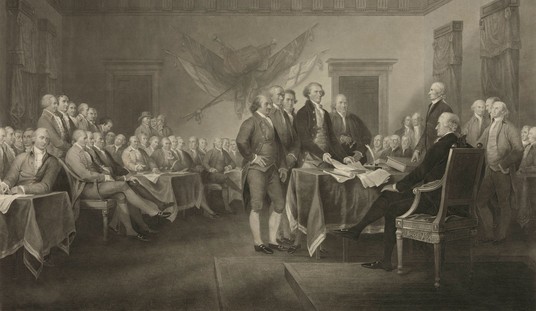I’ve walked the halls of military bases all over the world. From the quiet corners of European command posts to the buzz of stateside HQs, I’ve seen how order is maintained—not just by muscle or might, but by discipline. That’s what makes a fighting force elite. And I knew it growing up in a military family: you respect the chain of command. Period. You don’t pick and choose your loyalties based on your politics.
Yet today, it seems some commanders have forgotten that basic truth—and are testing the limits of insubordination.
Case in point: Col. Sheyla Baez Ramirez, garrison commander at Fort McCoy, Wisconsin, was suspended after it was discovered that the base’s official chain-of-command board was scrubbed of its civilian leadership. No photo of President Donald J. Trump. No Vice President J.D. Vance. No Secretary of Defense Pete Hegseth. Just… blank.
This wasn’t some routine delay in updating the wall. This was an unmistakable act of either protest or incompetence. And neither is acceptable. The Army insists her suspension isn’t tied to misconduct—because of course they did—but the facts speak louder. In the post-COVID military bureaucracy, this sort of brazen omission isn’t an accident. It’s a signal. And it’s the kind that undermines unit cohesion from the inside out.
Unfortunately, Col. Baez Ramirez isn’t the only one who’s decided to freelance the rules.
At Pituffik Space Base in Greenland, Col. Susan Meyers—then the base’s commander—sent an all-hands email rebuking comments made by Vice President Vance during an official visit. Vance had voiced concern about Denmark’s influence in Greenland, and Meyers made it clear she didn’t share the sentiment. In her note to the entire base, she distanced her command from the administration’s position and reaffirmed loyalty to a vague sense of “unity” across international lines.
Newsflash: that's not her job.
Recommended
She was promptly removed. As she should have been.
The job of a commander is to follow the lawful chain of command and implement policy—not editorialize it. Whether it’s a photo wall or a base-wide email, these commanders crossed a line. They weren’t upholding duty; they were grandstanding. In uniform.
These aren’t isolated incidents. This is a pattern—a creeping rot of ideological defiance that’s poisoning military leadership. If a private refused to carry out orders, they’d be reprimanded or worse. But somehow a colonel can erase the Commander-in-Chief from a base’s walls or fire off policy rebukes in a mass email and still keep their title?
It’s not just disrespectful. It’s dangerous.
And what does NPR do? Jump into action—not to report on the breakdown in discipline—but to peddle false narratives to cover for it.
On April 21, NPR claimed the White House was actively looking to replace Pete Hegseth as Secretary of Defense. The story, based on one anonymous “official,” was immediately shot down by White House Press Secretary Karoline Leavitt, who called it “total FAKE NEWS.” President Trump, she emphasized, “stands strongly behind Secretary Hegseth.”
So while commanders were being relieved for legitimate failures in leadership, NPR tried to suggest Hegseth was on the chopping block. That’s not journalism—it’s sabotage. And they’re doing it with your money.
Defund them. Let the tote-bag brigade pay for their own propaganda machine.
Here’s the bottom line: we cannot have a military where commanders are allowed to go rogue without consequence. Whether they’re omitting leadership photos, undermining U.S. policy in public messages, or fostering confusion about who’s really in charge, it all leads to the same outcome—chaos.
And chaos gets people killed.
The chain of command isn’t symbolic. It’s strategic. If we start allowing commanders to erase or contradict that structure based on political bias, we don’t just lose decorum—we lose deterrence.
Thankfully, in both of these cases, action was taken. But let’s not pretend this doesn’t go deeper. Every instance like this must be met with swift, unapologetic accountability. Not reassignment. Not counseling. Removal.
The job of a commander is not to “resist” or “redefine” the mission. It’s to lead with clarity and allegiance to the Constitution—not to a political agenda or personal vendetta. And it’s high time we got back to that standard.
Because the enemy at the gate is real.
But the enemy within?
Some seem to masquerade in uniform.

























Join the conversation as a VIP Member